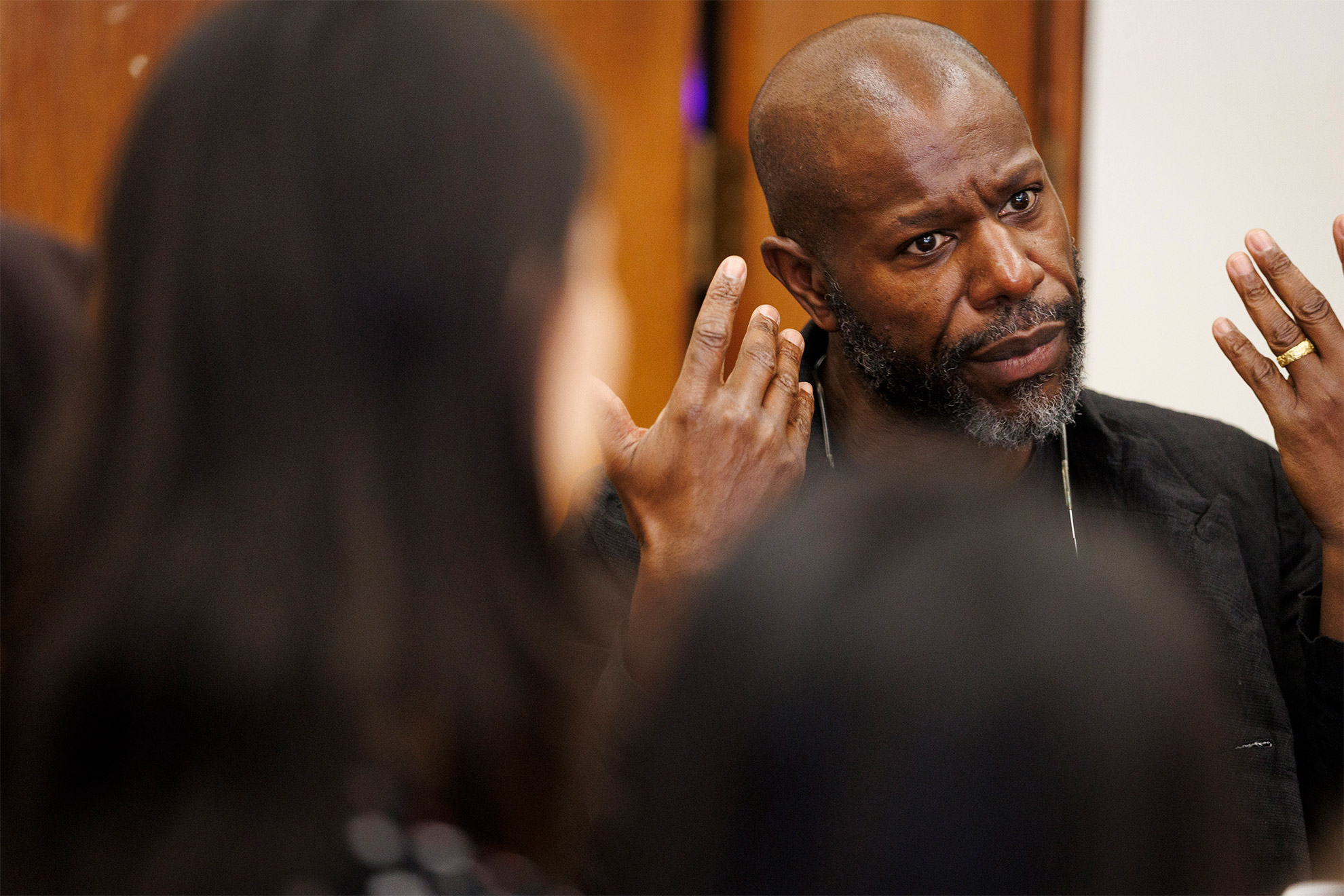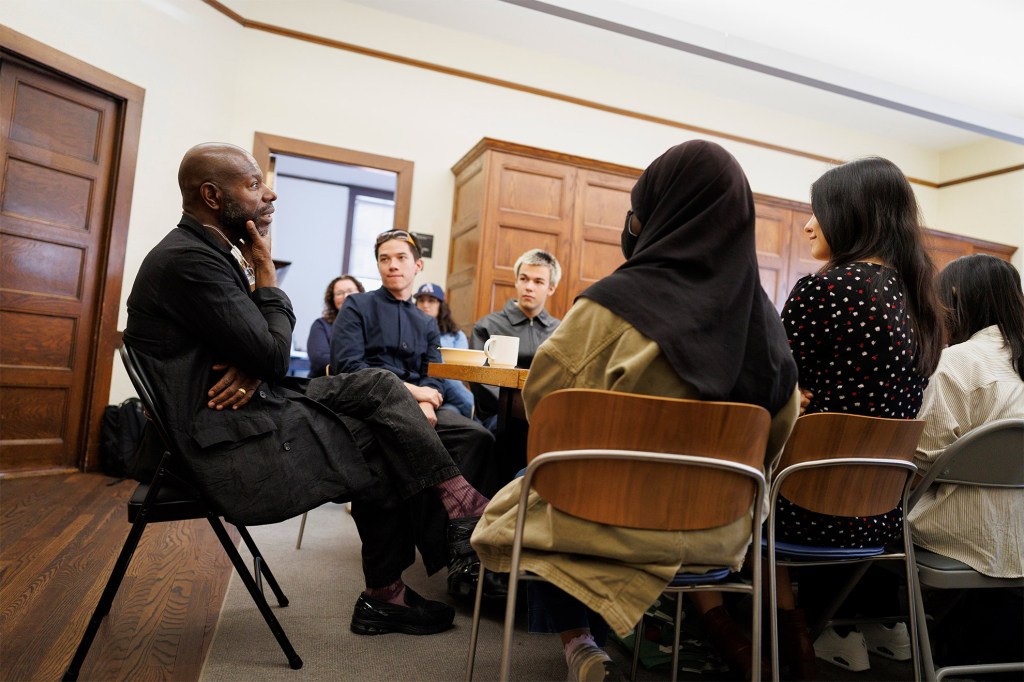Steve McQueen could lecture you, but he’s got other plans

While at Harvard, Norton lecturer Steve McQueen joined undergrads at ArtsBites, a luncheon and discussion series at the Office for the Arts.
Photos by Stephanie Mitchell/Harvard Staff Photographer
‘I think the audience needs more, and I feel I need to give more,’ says award-winning filmmaker — presenter of this year’s Norton talks
For Steve McQueen, live performance generates a force that no podium lecture can match.
It’s a conviction that shapes the Norton Lectures he is delivering this fall, in a series titled “Pulse,” featuring film, musical performances, and dialogue.
“There’s a certain kind of energy that could be produced by a performative idea of communication, and that’s what I’m interested in,” said the Academy Award-winning director of “12 Years a Slave.” “I’m not the kind of person who stands for an hour reading from a piece of paper. I think the audience needs more, and I feel I need to give more. I also feel the dialogue — the back-and-forth clash of two stones making a fire — could be thought-provoking for the audience as well as the participants.”
McQueen is recognized internationally for producing work that explores painful and challenging histories and exposes the fragility of the human condition. He directed the feature films “Blitz” (2024) and “Hunger” (2008), as well as the documentaries “Uprising” (2021) and “Occupied City” (2023).
The first of McQueen’s six Norton Lectures, delivered Tuesday, centered on the FBI files of legendary Black singer, actor, and political activist Paul Robeson. McQueen’s 2012-2022 video work “End Credits,” features a continuous projection of digitally scanned files from thousands of highly redacted, declassified documents kept on Robeson and his wife, Eslanda Goode Robeson, for most of the singer’s life, greatly damaging his career as a performer.

The lecture featured four performers reading sections from Robeson’s FBI files as visuals from the film were projected behind them. Afterward, McQueen and Dia Art Foundation curator Donna De Salvo spoke with Henry Louis Gates Jr., Alphonse Fletcher University Professor and director of the Hutchins Center for African and African American Research. In an interview with the Gazette, McQueen said that the first lecture was intended to reflect a sense of “urgency.”
“Small Axe,” the second lecture, scheduled for Oct. 21, centers on McQueen’s film anthology by the same name. The five films depict the experiences of West Indian immigrants in London from the 1960s to the 1980s, with five unique stories rooted in the Black British experience during a period of social and political upheaval. The films are being screened at the Harvard Film Archive ahead of the lecture.
“It’s one of those situations where people come together to combat a certain kind of power,” McQueen said. “It is within this proverb: ‘If you are the big tree, we are the small axe.’ If we’re working together, we can actually get things done.”
The third lecture, “Bass,” centers on an immersive installation that McQueen created in 2024. The work, inspired in part by the Middle Passage and the trans-Atlantic journey of enslaved people, features a combination of music focused on the low-end frequency of the double bass, with colored lights.
“‘Bass’ is about a constant,” McQueen explained. “It’s about how sound is a liberation, in a way, to all of us.”
That lecture will feature a performance by bassist, singer-songwriter, and poet Meshell Ndegeocello. McQueen and De Salvo will speak with Noam M. Elcott, an art historian and faculty member at Columbia and Yale.
The Mahindra Humanities Center celebrated the 100th anniversary of the Norton Lectures earlier this month, with a panel discussion and the release of five new books from Harvard University Press commemorating past lectures.
McQueen said he feels “very honored,” to be delivering the Norton Lectures in the series’ 100th year.
“People, when they come to a lecture or any kind of event, they bring themselves, and therefore they bring their baggage,” McQueen said. “Whatever they take out from it is what they’re dealing with individually. I’m hoping that they have that something to take away with them. That’s as much as I can hope for.”
Related story
-
 Arts & Culture
Arts & CultureMarking 100 years of Norton Lectures
Panelists reflect on ‘incredible value’ of annual series as ‘megaphone’ for artists and scholars




